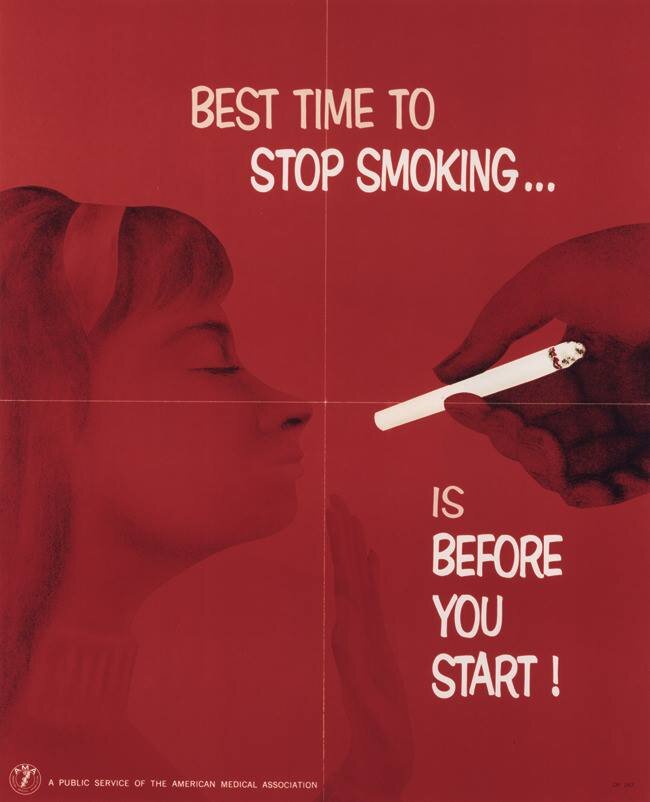
The National average of teenagers who smoke - a whopping 18%!
It is common knowledge now that smoking causes cancer, emphysema, and heart disease; that shortens your life by as much as a decade; and cigarettes alone cost smokers thousands of dollars a year. Why do people smoke? Addiction.
Two facts that must be addressed to reduce the number of teen smokers.
- 90 percent of smokers began before the age 21.
- 3,900 adolescents under 18 years of age try their first cigarette each day and about 950 of them will succumb to a smoking habit.
The Mayo Clinic Offers 10 Tips to Keep Teens Smoke Free1. Set a good example
It's a fact teens are more lickely to smoke if their parents smoke. The earlier a parent quits - the less likely the teen will smoke. Need help quitting? Visit http://www.nysmokefree.com/ for tips, support and information. Your docotr is a great resource, too. Help is available.
A smoking parent can also take these measures to discourage their child from smoking:
- Don't smoke in the house, in the car or in front of your teen,
- Don't leave cigarettes where your teen might find them.
- Tell your child how unhappy you are with your habit,
- Explain how how difficult it is to quit and that you'll keep trying until you stop smoking for good.
2. Understand the attraction
Did you smoke? Remember why you or your friends started. Was smoking a form of rebellion, to feel independent? Did you smoke because your friends did?
Ask your teen how he or she feels about smoking and ask if any of their friends smoke. Discuss the consequences of consequences of bad choices. And point out the marketing efforts of tobacco companies that are trying to influence ideas about smoking, like product placement in films, print advertisements and store displays.
3. Say no to teen smokingRemember who the parent is and tell your teen that smoking isn't allowed. Teens whose parents set the firmest smoking restrictions smoke less than do teens whose parents don't set smoking limits. Parental disapproval carries greater weight than most parents believe.
4. Appeal to your teen's vanity
Is smoking really cool and glamorous? Smoking is actually dirty and smelly. It results in bad breath, yellow teeth and facial wrinkles. Cigarette smoke makes clothing and hair smell. Smokers have less energy for sports and activities and leads to a chronic cough.
5. Do the math
Smoking is expensive!
6. Expect peer pressure
Overcoming peer pressure may be as simple as ,"No thanks, I don't smoke." Other children who smoke can be convincing, but as a parent you can provide your child with the knowledge that will allow them the strength and integrity to refuse cigarettes. Discuss peer pressure and rehearse how to handle tough social situations.
7. Take addiction seriously
Every new smoker believes that they can quit at any time. Teen and adolescent smokers become addicted with occasional and low levels of smoking. Remind your teen everyone was a new smoker at one time and that most adult smokers start as teens. Once you're hooked, it's tough to quit.
8. Predict the future
Children believe they are bulletproof and bad things only happen to other people. The terms cancer, heart attacks and strokes in relation to cigarette smoking has become cliche' and children see these terms only int he abstract. Explain how smoking has affected loved ones, friends, neighbors or celebrities and use their experiences with illness related to smoking as real-life examples.
9. Think beyond cigarettesThe Mayo Clinic reminds us that:
Smokeless tobacco, clove cigarettes (kreteks) and candy-flavored cigarettes (bidis) are sometimes mistaken as less harmful or addictive than are traditional cigarettes. Teens also often think that water pipe (hookah) smoking is safe. Nothing could be further from the truth. Kreteks, bidis and hookahs all carry health risks. Don't let your teen be fooled.
10. Get involved
Take an active stance against teen smoking, discuss the consequences of smoking with your child. Make sure your child understands that never smoking or stopping now is one of the best things everyone and anyone can do for a lifetime of good health.
As a parent participate in local and school-sponsored smoking prevention campaigns, and get your child involved. Support efforts to make public places smoke-free. These actions can help reduce the odds that your child will become a smoker.
I would like to add 11. Discuss with your healthcare provider
As a physician we have a number of tools available to help you maintain or achieve a smoke-free home. Cigarette smoking is the basis of so many health problems and is 100% preventable.
If you smoke - get help to stop. If you don't smoke - Don't start!

